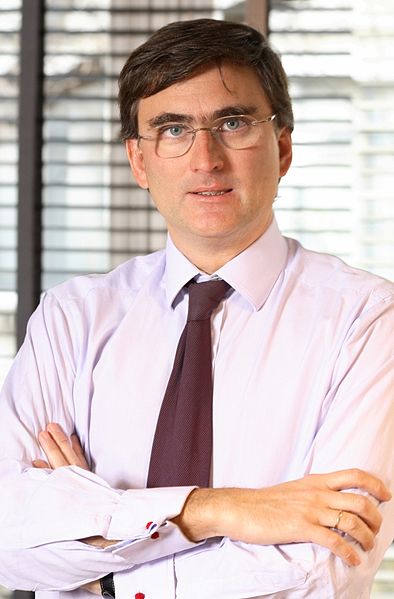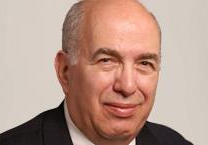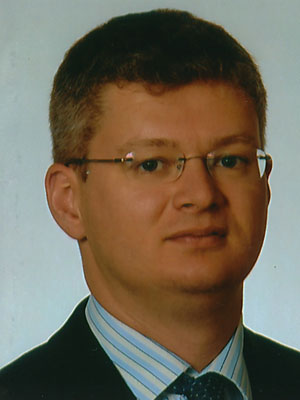What’s the “Warren Buffett of Europe” Up To: Part Two

In the previous post about Bestinver Asset Management’s annual meeting this year, I spoke about its origins, investment style, and efforts to educate its clients so that they share the same set of principles when it comes to market timing and investment time frame. In this post, I’ll delve into the current views of Bestinver’s managers.
The meeting began with an overview of the global and Iberian portfolios and some minor remarks about macroeconomics and the general market. This year, Bestinver introduced the Wolters Kluwer investment thesis as one the managers think will work out fine and the Italian holding CIR as one of their big mistakes, from which they learned the lesson of never again investing in a commodity-like business (more on this later).
The Q&A section took a good two-thirds of the meeting time, and it was a bounty of investment ideas and tips. The managers answered more than 80 questions. And although some of the questions were very similar, with every repetition we learned a new detail about the team’s views on certain macro subjects and industries. Most of the questions about specific stocks were related to Spanish companies, in spite of Bestinver’s flagship fund being underweight in the Spanish market. All of the questions could be classified and summarized as follows.
Macro
The managers expect global economic growth in the range of 2.8% to 3.5% for 2013 and see China and the ASEAN countries as the main drivers of this growth, with 2 billion people combined in these two regions. Regarding China, they are not worried about the foundations of the country’s economic growth. Based on proprietary research, they believe that growth is fueled by savings, that real estate prices are growing at the same pace as disposable income, and that the loan underwriting standards in China are sensible (just the opposite of what the famous short seller Jim Chanos thinks).
When asked about Africa, they said that they do not currently invest in African exchanges. But they said that some of the global companies in their portfolio might be Africa plays. They are optimistic about the prospects of the continent as long as it is not affected by “the oil curse.”
As for Spain, they see the light at the end of the tunnel for the country. The reasons for optimism in this case are the banking industry overhaul and the increase in competitiveness. They think that some of the painful measures the government had to take (especially the labor market reform) were needed. And even though up to now we’ve just witnessed the ugly face of these reforms, in the end, they’ll yield results. They note that we have yet to see the adjustment of the government sector to the new reality.
Perhaps the all-star macro question was whether they thought there would be a euro breakup. The answer to this question was that, given that they haven’t ruled out the scenario of a euro breakup, they have calculated how it would impact the valuation of their Iberian holdings and they are comfortable with the discount implicit in the current prices of these companies.
Is This a Good Market?
On the one hand, they said they are not worried about the current market level because their international holdings are trading at a P/E of 9× compared with a 15× PER of the S&P 500 Index. But on the other hand, they advise keeping some of the savings in cash in order to have some firepower when the big correction comes.
They also think that the retail investor is nervous after two 50% market drops in 2000 and 2008 and a 20% correction in 2011 and that money allocated to stocks by institutional investors is historically low. At the same time, Bestinver’s managers have rotated to quality and defensive stocks. There were a lot of mixed signals. If I had to draw a conclusion from them, I’d say Bestinver’s managers expect the market to drop in the short term but that the rest of the sentiment indicators lead them to conclude that we’re far from a generational high.
Iberian Equities
There were a lot of questions about banks, a sector of the market that Bestinver has shunned for several years. Francisco García Paramés, chief investment officer at Bestinver, thinks that after the banking system reform and the various bailouts by the FROB (Fondo de Reestructuración Ordenada Bancaria [Fund for Orderly Bank Restructuring]) of entities like Bankia, it might be the time to start studying the industry again. However, the managers made clear that they wouldn’t invest in a multinational bank, such as Santander or BBVA, because they’d have to analyze the banking industry of several countries to reach a conclusion. If they were to invest in a bank, it would be one focused in the Spanish market, which reduces the list of candidates to Popular, Sabadell, Caixabank, and Bankinter (in which they have bought a tiny stake already).
It was also clear how the managers take advantage of the price variation of the Iberian blue chips to create value. They explained their rotation from Gas Natural to Iberdrola (both utility companies) based on recent performance; Gas Natural has almost doubled since July lows. Based also on recent performance, they’ve decided to somewhat reduce their stake in Portugal Telecom and build a position in Telefonica. Concerning the latter, the managers are optimistic about its latest strategic moves, such as the focus on debt reduction, a more aggressive pricing policy to recover market share, and a clear bet (as can be seen in the capex committed) on the fiber optic cables network.
In the construction industry stocks, they’ve reduced their position in Ferrovial, one of their major bets in the last few years. And they are positive about the prospects of ACS, which they are playing through the holding company Corporación Financiera Alba, one of the main positions of the Spanish portfolio. Alba is currently trading at a discount to its core asset value.
Alba owns a 24.24% stake in Acerinox, one of the world’s leading stainless steel producers. This stock, along with Alba, is Bestinver’s biggest position in a single Spanish stock. It is now trading at historically low levels, but Paramés and his team think that profits will revert to normal once the overcapacity in China is taken out of the market because of its lack of competitive advantages.
There were a couple of questions about Pescanova, a company that was cooking its books and finally went bust. Paramés admitted that they had noticed that something was not right. They managed to reduce their position by 70%, but they were not decisive enough to reduce it by 100%.
Asked whether they thought the market applies a discount to the stocks of companies domiciled in Spain, Paramés denied this possibility given the fact that some companies, such as Inditex, Viscofan, Ferrovial, and Amadeus, are trading at historically high levels. He believes that the market has been able to separate the wheat from the chaff when it comes to exposure to the economic risks of Spain.
International Equities
In this area, there was a greater variety of investment ideas discussed. The managers spoke about Thales, a French defense contractor with improving fundamentals, a clear competitive moat , and an attractive price. They also explained why they liked insurance brokers such as Willis and AON — companies with a RoCE (return on capital employed) around 50% in which they foresee a growing market share 10 years hence. About Panalpina, they said that the company is trading at a multiple well below that of its peers and that the freight forwarding industry will thrive thanks to the growing exchange of goods between countries.
At the end of 2012, Bestinver bought some shares of Hewlett Packard and exited the position when the price rebounded. The reason, Alvaro Guzmán explained, was that there are a couple of divisions within the company whose future they are unable to forecast.
About Berkshire Hathaway, they said that they always recommend it to anyone who asks them about a vehicle to invest in U.S. equities, but they think its fair value is only 30% or 40% higher than where it is currently trading and that the RoCE of its businesses is not very good.
Portfolio Management and Some Philosophical Issues
The most interesting question in this area was, Why use RoCE instead of ROE (return on equity) to measure the quality of the business? The reason is that RoCE is ideal for gauging how good a business is, regardless of how it is financed.
They next discussed the advantages and disadvantages of size in terms of assets under management (AUM). Paramés believes that at the current level of AUM, they are at the sweet spot with few of the disadvantages of having to deploy a lot of capital and all of its advantages — such as direct access to investees’ management instead of working with an investor relations person.
A recurring question at every annual meeting is why they don’t invest in U.S. companies. Again, the reason is that Paramés and his team think that the U.S. market is much more efficient than the European market because there are more value-focused managers seeking opportunities in the United States.
Finally, somebody asked if they would launch a fund with a focus on non-listed companies. Paramés answered that it is much more fun and profitable to invest in listed companies because of the dynamics that create inefficiencies that can be exploited. In contrast, when buying a private business, the seller always has the upper hand because the seller knows more about the company.
If you liked this post, don’t forget to subscribe to Inside Investing via Email or RSS.


